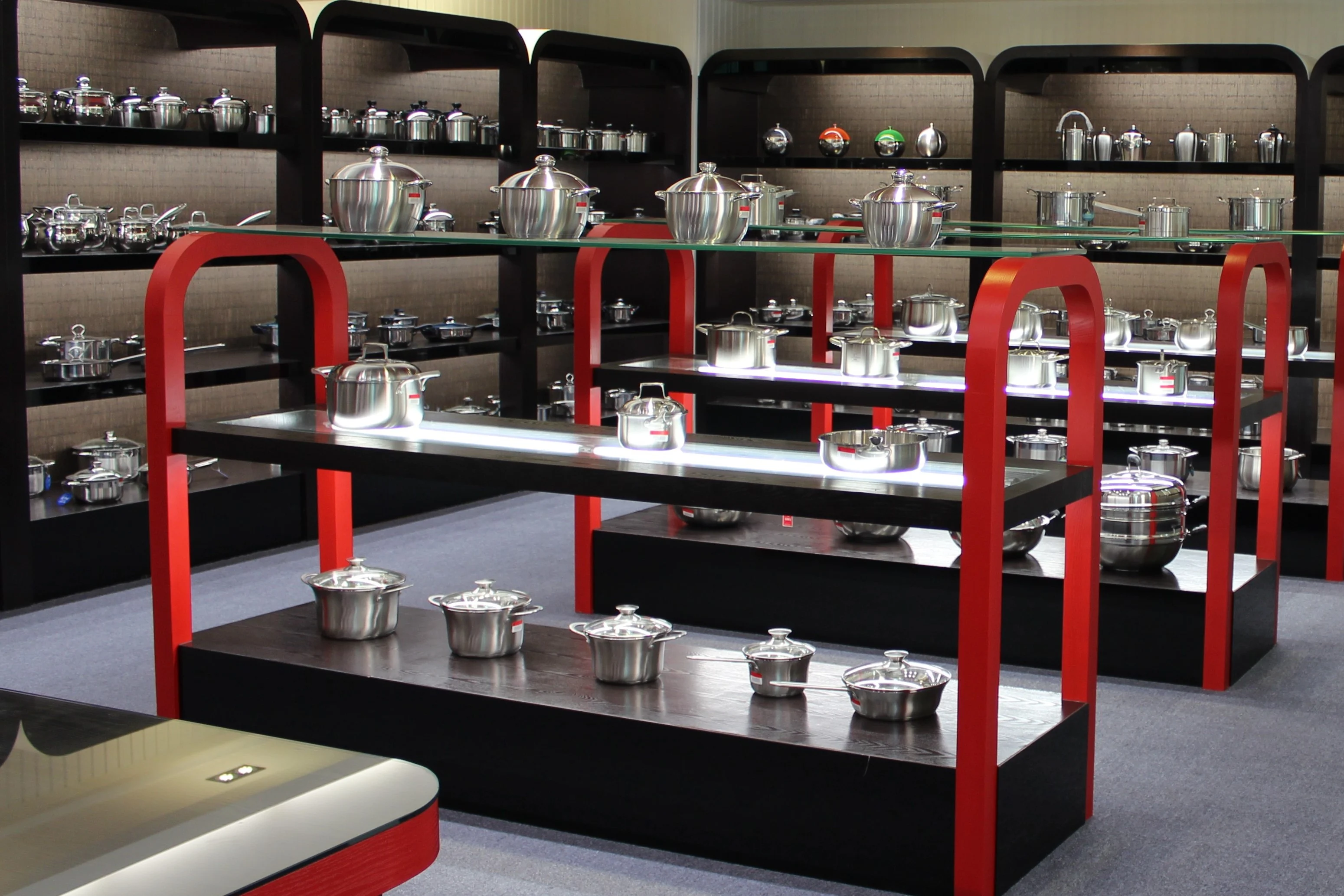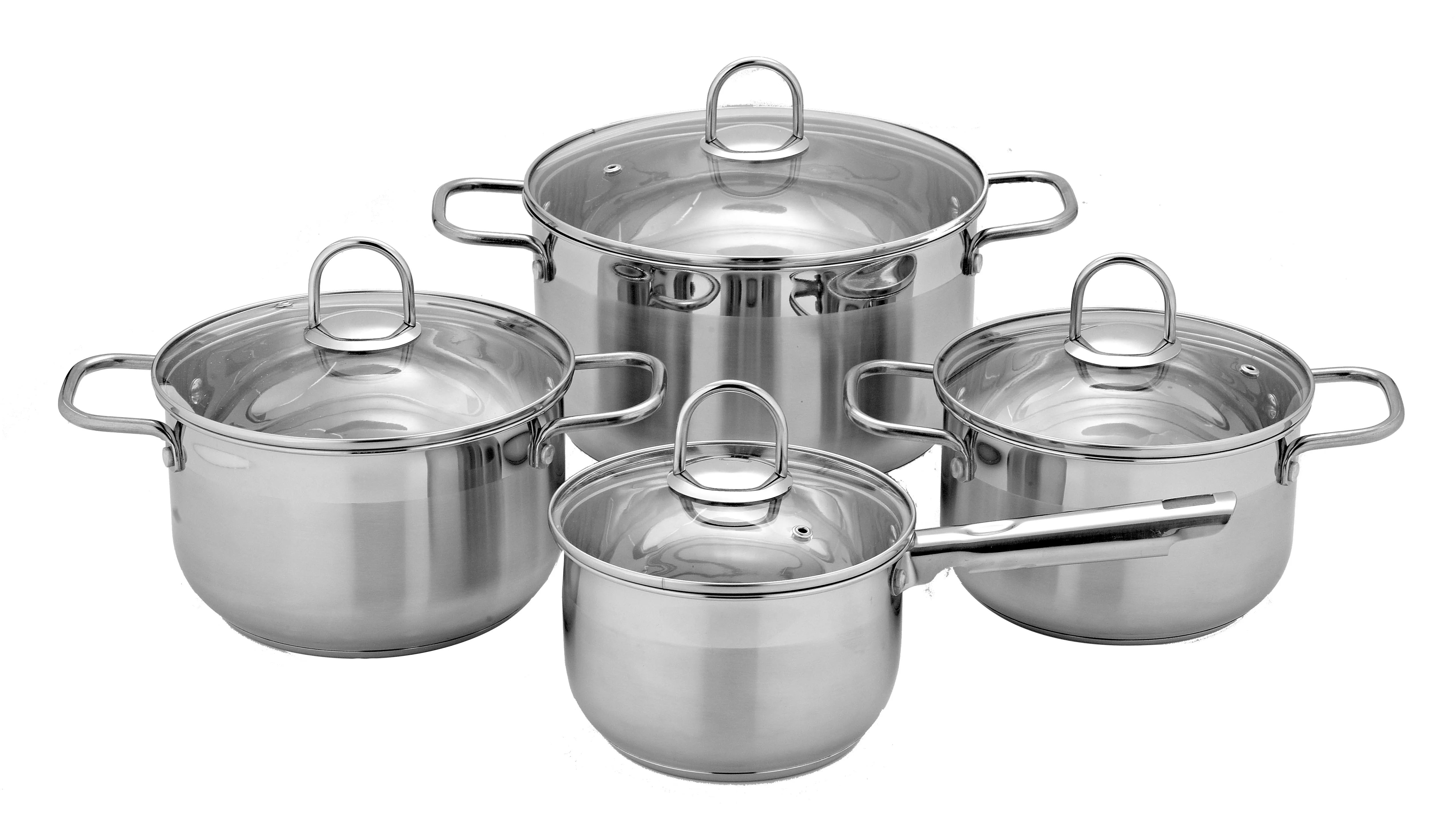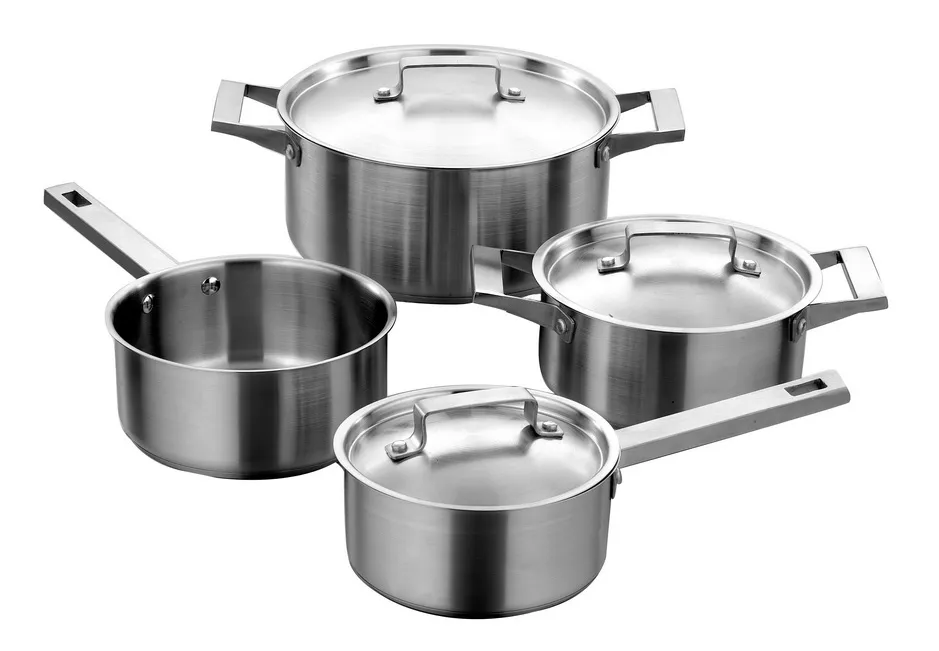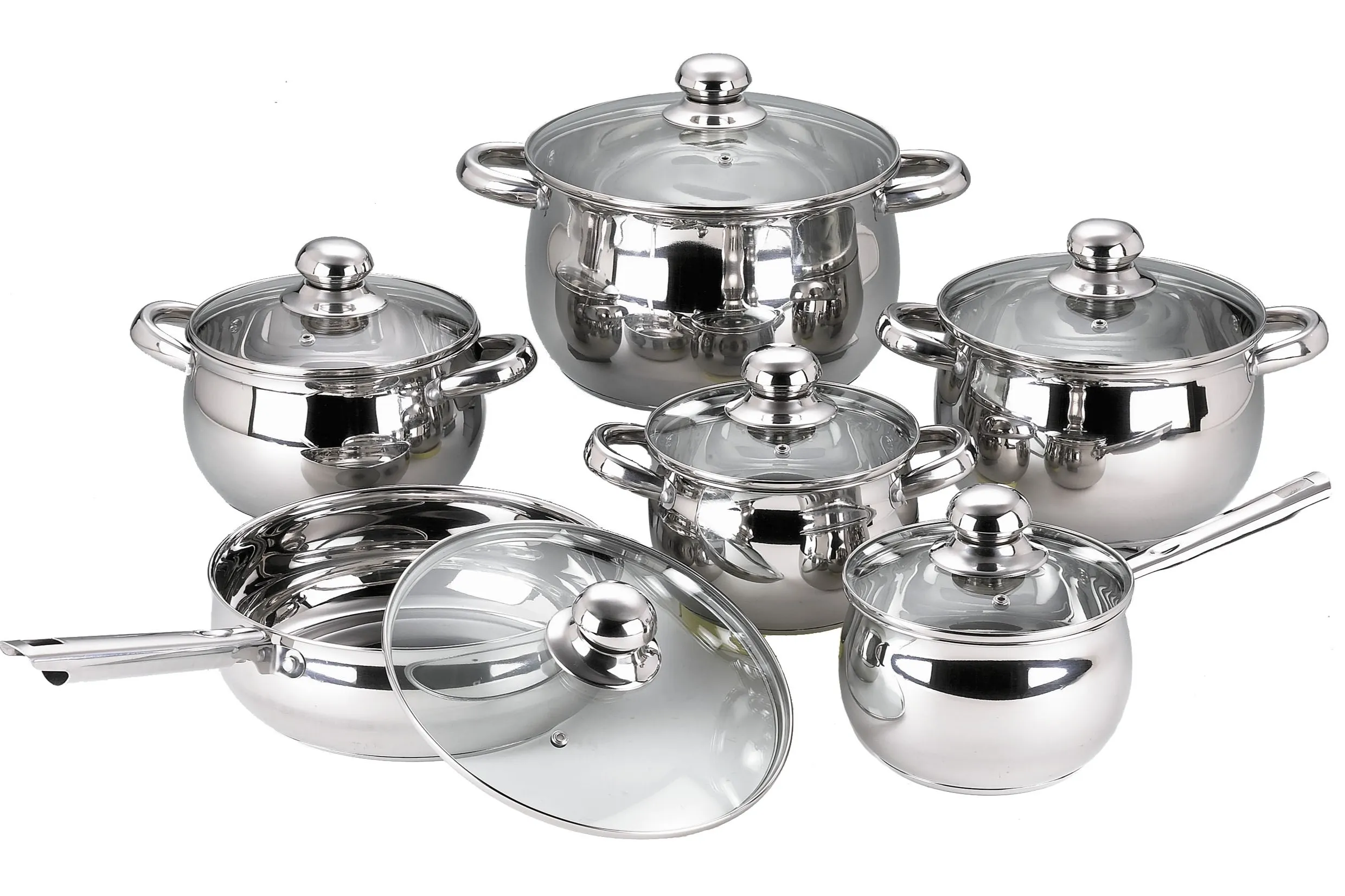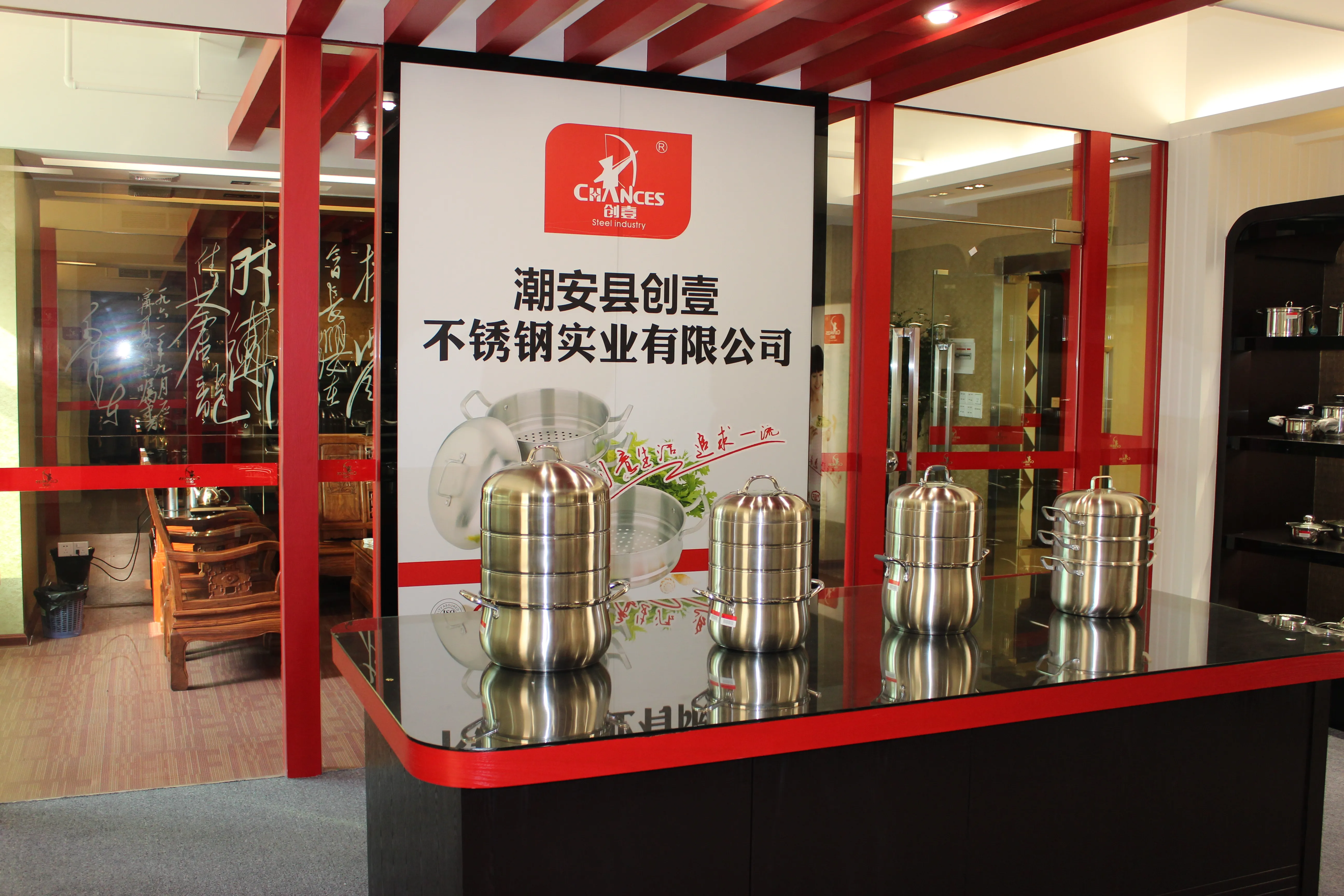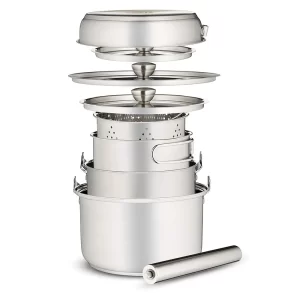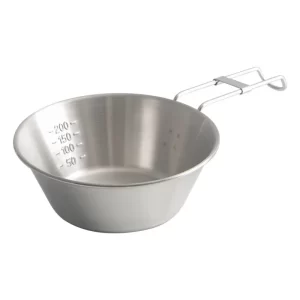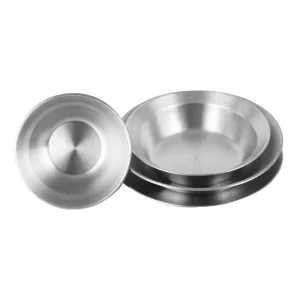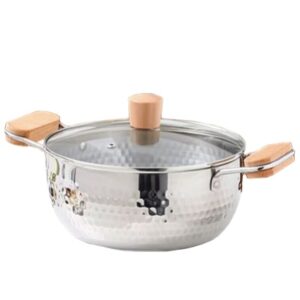Выбор правильный выбор материала посуды важно как для эффективности приготовления пищи, так и для простоты обслуживания. Вот некоторые из наиболее распространенных материалов для приготовления пищи, а также их преимущества и недостатки, которые помогут вам сделать выбор.
Оглавление
ToggleПосуда из нержавеющей стали
Нержавеющая сталь долговечна, устойчива к ржавчине, коррозии и образованию пятен, что делает ее идеальной для длительного использования. Она не вступает в реакцию, поэтому не изменяет вкус кислых продуктов. Однако посуда из чистой нержавеющей стали может плохо проводить тепло, поэтому для лучшего распределения тепла требуется многослойная конструкция с алюминием или медью. Кроме того, пища может пригорать, если сковорода не была предварительно разогрета или смазана маслом.
Чугунная посуда
Чугун, как известно, хорошо удерживает тепло и равномерно распределяет его, поэтому такая посуда отлично подходит как для длительного медленного приготовления пищи, так и для жарки. Честно говоря, она очень долговечна - при правильном уходе служит не одно поколение. Но чугунные кастрюли и сковородки очень тяжелые, а значит, и полные кастрюли также имеют тенденцию становиться тяжелыми, так как время от времени требуют приправы для поддержания антипригарной поверхности и предотвращения ржавчины. Кислая пища также может вступать с ними в реакцию, изменяя вкус.
Посуда с антипригарным покрытием
Посуда с антипригарным покрытием легко моется и идеально подходит для приготовления деликатных блюд, таких как яйца, рыба или блины. Они практически не требуют масла, что делает их более полезными для здоровья. Однако со временем антипригарная поверхность теряет свои качества, особенно при длительном использовании. При неправильном обращении они легко царапаются. Некоторые старые антипригарные материалы для посуды также изготовлены с использованием химических веществ, которые могут угрожать здоровью, хотя новые более безопасны.
Алюминиевая посуда
Алюминий имеет небольшой вес, дешевле других металлов и является отличным проводником тепла, что позволяет готовить равномерно. Однако многие необработанные материалы алюминиевой посуды могут вступать в кислотную реакцию с некоторыми продуктами при их добавлении и изменять вкус и внешний вид готовых блюд. На такой посуде обычно появляются царапины и вмятины, что сокращает срок ее службы, если она не обработана или не анодирована.
Материалы для изготовления медной посуды
Посуда из меди известна своей хорошей теплопроводностью и точным поддержанием температуры. Они быстро нагреваются и остывают, обеспечивая отличную терморегуляцию. К сожалению, медная посуда стоит недешево, и для поддержания ее блеска ее нужно часто полировать. Большинство медной посуды покрыто нержавеющей сталью или оловом, которые не вступают в реакцию с пищей. Покрытие несколько снижает эффективность теплопроводности меди.
Чугунная посуда с эмалевым покрытием
Чугун не только поглощает тепло, как настоящая чугунная сковорода, но и легко поддается уходу. Эмаль больше не вступает в реакцию с кислыми продуктами, поэтому все ароматы остаются в вашей посуде. Такая посуда тяжелая, подвержена риску раскола или скола при неправильном обращении и стоит дороже обычной чугунной.
Материалы для керамической посуды
Материалы керамической посуды экологичны и нетоксичны, они не вступают в реакцию с готовящейся пищей и окружающей средой. Распределение тепла происходит равномерно, а чистка очень проста. Однако керамическую посуду очень легко разбить или расколоть, особенно если ее уронить. Кроме того, антипригарная поверхность со временем стирается, а жаропрочность не сравнится с чугуном или нержавеющей сталью.
Материалы для изготовления стеклянной посуды
Считается, что материалы посуды из стекла обладают очень низкой реакционной способностью или не вступают в реакцию сами по себе. Это позволяет легко очищать их после использования в духовке или микроволновой печи. Более того, с их помощью можно наблюдать за тем, как готовится пища. Однако стекло более хрупкое, чем другие материалы для приготовления пищи, и очень легко бьется, особенно при перепадах температуры. Кроме того, стеклянная посуда тяжелее обычной.
Какой материал лучше всего подходит для посуды?
Если и существует материал для посуды, который можно назвать лучшим, то, вероятно, большинство кухонь считают таковым нержавеющую сталь.
Являясь производителем посуды из нержавеющей сталиПоэтому рекомендуется обратить внимание на долговечность, устойчивость к ржавчине и пятнам, а также на нереактивные свойства этого материала, которые очень полезны при приготовлении самых разнообразных блюд. Кроме того, он упрощает уход и продлевает срок службы. Однако выбор материала для посуды зависит от конкретного человека. В один момент медь может быть отличным материалом для точного контроля температуры, а в другой - чугун, который обеспечивает довольно равномерное распределение тепла. Выбор зависит от вас и от того, как вы готовите.

